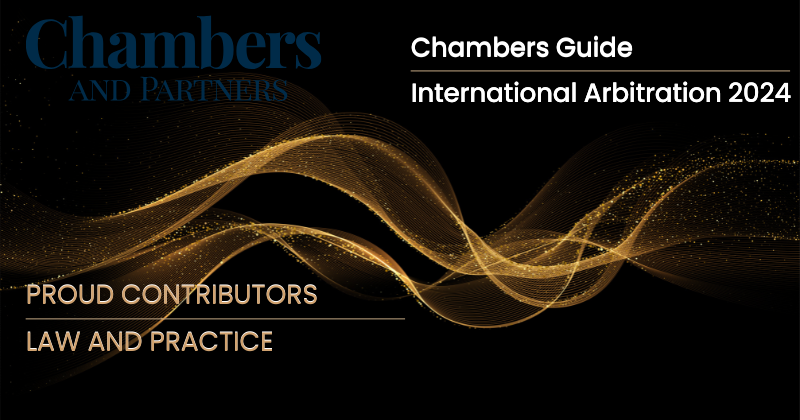Introduction
Microfinance institutions (MFIs) emerged in Kenya in the 1970s with the aim of providing small or micro loans and saving options to low-income earners who would otherwise be unable to access mainstream financial services. Small and micro borrowing is a rapidly growing industry, more so in the advent of digital lending, mobile money and emerging markets. However, such developments often attract the attention of regulators, specifically the Central Bank of Kenya (CBK) in the case of MFIs.
In this article, we consider a recent decision by the High Court of Kenya (Muigai J) in Kenya Akiba Microfinance Limited v Central Bank of Kenya & 14 Others (2022) eKLR in which the Court clarified the legal framework for addressing regulatory issues, including the scope of the authority of CBK, that impact the operations of MFIs. It is useful, before proceeding to analyse the decision, to contextualize the regulatory framework of the microfinance industry in Kenya.
Regulating MFIs
There are two types of MFIs under the Microfinance Act, 2006 (the Act) i.e., deposit-taking MFIs and credit-only MFIs. Deposit-taking MFIs are regulated by CBK and operate within the stipulations of the Act, which came into effect in 2006 and has been amended from time to time since then. Accordingly, any institution that seeks to engage in deposit-taking microfinance banking business must be duly registered with and licensed by CBK and is bound by the provisions of the Act. According to CBK, as at 31st December 2021, the number of deposit-taking MFIs in Kenya was fourteen (14), with eleven (11) holding nationwide licenses and three (3) holding community microfinance bank licenses.
On the other hand, while the Act recognizes the existence of credit-only MFIs, their regulation is limited. Under the Act, credit-only MFIs are prohibited from using protected words such as “microfinance bank business”, “finance” and “bank”, derivatives of the same or any other word indicating the transaction of financial business, unless licensed under the Act or the Banking Act (Cap. 488) Laws of Kenya (the Banking Act). The role of CBK is provided for in section 8 of the Act, which empowers CBK to investigate, under warrant, any person who carries out deposit-taking microfinance business contrary to the provisions of the Act. This therefore means that credit-only MFIs fall under the jurisdiction of CBK once they start acting as deposit-taking MFIs without the requisite licensing.
Other than this, there is not much regulation of credit-only MFIs, at least not by CBK, with the expectation being that they might be regulated by other statutory bodies, including the respective Registrars under the Hire Purchase Act (Cap. 507) Laws of Kenya (the Hire Purchase Act) or the Movable Property Securities Rights Act, 2017. This makes for convenient regulation since the registries under the aforesaid Acts are both under the purview of the Business Registry Service. Indeed, with a view to further consolidate these regulatory efforts, the Hire Purchase Amendment Bill, 2021 proposes to make the Registrar of Companies the registrar under the Hire Purchase Act. Even with this proposed amendment, the laws and regulations governing deposit-taking MFIs are much wider and far reaching compared to those governing credit-only MFIs. With such limited regulation, it is quite possible for credit-only MFIs to operate beyond the confines of the law and ending up dipping their proverbial toes into the realm of banking as happened with Kenya Akiba Microfinance Limited (Kenya Akiba).
Background to the Case
The suit was instituted by Kenya Akiba which sought inter alia a declaration that its business operations never infringed upon any of the provisions of the Banking Act, and that a raid said to have been carried out by the Defendants on its premises on 2nd November 2005 was illegal and unjustified. Kenya Akiba sought damages amounting to KES. 930 Million. Amongst the listed Defendants was CBK, which is mandated to regulate the banking industry. The other Defendants were various police officers working under the Banking Fraud Investigations Unit (BFIU) of the Kenya Police Service, who were represented by the Attorney General.
The Parties’ Positions
Kenya Akiba claimed that the Banking Act did not apply to it, as it engaged in microfinance and was licensed to carry out hire purchase business under the Hire Purchase Act. Kenya Akiba argued that it did not advertise its operations as a bank but a company offering loans by receiving deposits with the same being recorded in passbooks. It was on this basis that Kenya Akiba sought a declaration that it had the right to operate under the name “Kenya Akiba Microfinance Limited”. In light of this, Kenya Akiba claimed that a search and seizure of its property said to have been conducted by the Defendants was unlawful, unjustified and infringed upon its right to use its name and conduct its business, which actions consequently led to Kenya Akiba suffering huge financial losses arising from inter alia unrecoverable loans, frozen bank accounts and the carting away of goods.
On its part, CBK submitted that Kenya Akiba engaged in financial activities that went beyond the scope of mere hire purchase business and fell within the purview of the Banking Act, which could not lawfully be undertaken without CBK’s approval. Such activities included taking deposits without a valid license, advertising the availability of loans and using the word “finance” contrary to the Banking Act and without the requisite consent of CBK. Further, CBK had received a significant number of complaints from Kenya Akiba’s clients and government agencies, who all made claims that Kenya Akiba was operating as a deposit-taking MFI.
The other Defendants averred that Kenya Akiba did not reveal any legitimate hire purchase business but that of banking instead, which included taking deposits, having savings, giving loans, and taking securities. The other Defendants also argued that Kenya Akiba failed to produce any hire purchase agreements and did not present credit facility documents that would have verified the legitimacy and lawfulness of its operations.
The Decision
In its Judgment, the Court began by noting that Kenya Akiba was incorporated in 2004, at a time when microfinance businesses were not regulated under their own Act. The Court further noted that the Banking Act did not have provisions regulating such institutions prior to 2006, which is when the Act came into force.
Notably, one must not overlook the mandate of CBK in ensuring that only institutions it has licensed engage in financial business under the Act, the Banking Act and its regulations. Failure to do so empowers CBK to conduct investigations upon suspicion of any breach per its statutory mandate.
The Court referred to a General Notice dated 31st October 2005 issued by CBK which stated inter alia that any entity set up as a business through incorporation as a company which bore the names “finance” and related derivatives such as “microfinance” and issued advertisements, circulars or other documents inviting persons to make a deposit would be in contravention of the Banking Act. CBK accordingly provided a moratorium of up to 31st January 2006 for cessation of any unauthorized use. The Court reasoned that Kenya Akiba, in failing to regularize its actions, could not cure or excuse the violation of section 3 of the Banking Act.
In considering whether the business operations of Kenya Akiba contravened the Banking Act, the Court analysed the meaning of the terms “bank”, “banking business”, “hire purchase business” and “financial business” within the scope of the Banking Act. The purpose of this exercise was to determine whether the activities performed by Kenya Akiba fell within the aforesaid descriptions.
The Court also found that whilst Kenya Akiba operated a current account under the Hire Purchase Act, its actions of advertising to secure loans, receiving deposits, charging interest and giving customers savings passbooks did not amount to hire purchase. Further, Justice Muigai discerned from the Memorandum and Articles of Association of Kenya Akiba, the company profile and various transactions it undertook as firmly holding it out to be a finance institution operating banking services due to its use of the word “finance”, all of which it was doing without the requisite license under the Banking Act. The Court further noted that no hire purchase agreements were executed, produced or availed by Kenya Akiba as evidence of carrying out hire purchase business.
For the abovementioned reasons, the Court held that Kenya Akiba carried out its business not as specified in the license of a hire purchase business but that of a financial institution and was consequently in breach of various provisions of the Banking Act. As such, it was not entitled to the damages it sought from the Defendants.
The High Court’s decision sets an important precedent on the lawful operation and regulation of MFIs in Kenya. The case highlights activities that expressly fall within the definition of a financial institution under the Banking Act and leaves no room for any ambiguity. Emphasis is placed on activities such as deposit-taking and loan-offering amongst others, which trigger the requirement to register with CBK and operate under CBK’s mandate.
Notably, one must not overlook the mandate of CBK in ensuring that only institutions it has licensed engage in financial business un- der the Act, the Banking Act and its regulations. Failure to do so empowers CBK to conduct investigations upon suspicion of any breach per its statutory mandate. As Kenya Akiba has lodged a Notice of Appeal against the Court’s decision, it will be interesting to see what the Court of Appeal makes of the matter. For now, Justice Muigai’s comments bring it all to full circle when the learned Judge stated:
“A regulator has a duty to protect the innocent public from unregulated institutions, where intervention is in good faith then it is upheld.”





